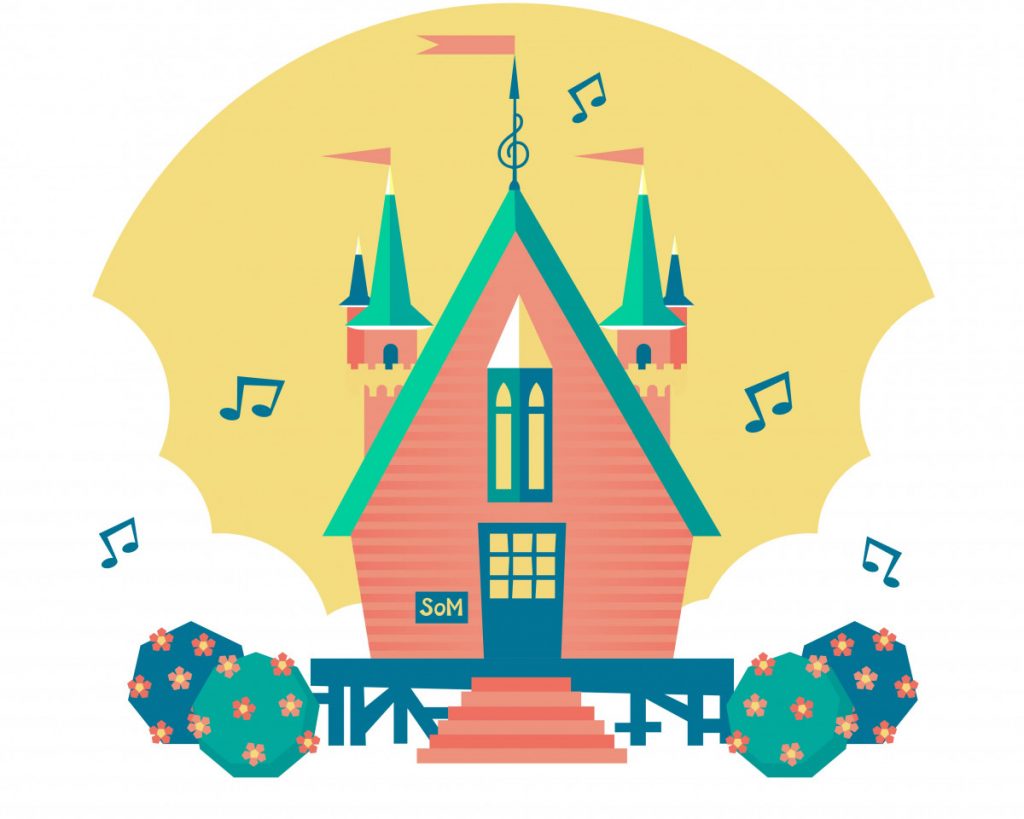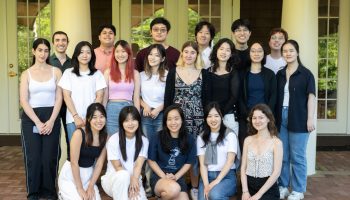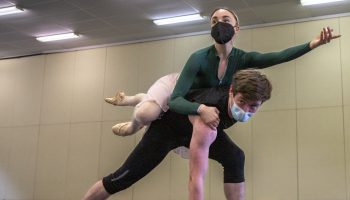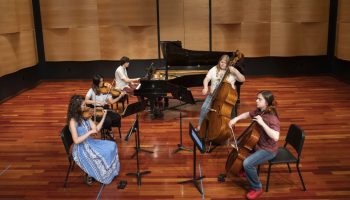
“It’s kind of a funny story,” Melanie Long said, as to how her choice for the fourth and final voice recital of the season came to be.
Long, a student from the Manhattan School of Music, will perform Italian opera composer Vincenzo Bellini’s “La Ricordanza.” Bellini actually recycled his own composition, and it’s hard for historians to tell whether this song was written first or whether Bellini transformed the aria afterwards into a song. Whatever the case may be, the piece is most familiar to listeners as Elvira’s aria “Qui la voce” in Bellini’s 1834 I Puritani.
“If I wrote something that brilliant, I would do the same thing; refurbish it and stick it on something else,” Long said.
The piece describes human connectedness, according to Long, but at the same time, recounts “someone who was deeply, deeply in love with another, remembering how much she or he loved them, but also remembering how that person left them in the end.”
“We are all dealing with loss right now, whether that is from death, or the loss of not seeing our friends and family across the country,” she said. “Although (this piece) is about a lost love, it still has an ability to translate to grief in general — we are all grieving in some form.”
The greatest challenge: keeping her composure.
“The whole time, I am trying not to get lost in that feeling of complete grief, because it can take over the performance if you let it,” Long said.
Long will be joined by 10 other students from the Chautauqua School of Music Voice Program to perform in their final recital of the season at 7 p.m. EDT on Wednesday, Aug. 5, on the CHQ Assembly Virtual Porch.
Alexis Reed, a soprano from Oberlin Conservatory, will sing Gustav Mahler’s “Frühlingsmorgen” from “Des Knaben Wunderhorn,” which translates to “The Boy’s Magic Horn.” “Des Knaben Wunderhorn” are voice-and-piano and voice-and-orchestra settings of German folk poems chosen from a collection of the same name published in 1805.
“It’s an upbeat, cheery piece that always makes me happy, which is a really nice perk for this time,” she said. “This song, in my opinion, comes from the perspective of a sister telling her sibling to get up and get out because the sky is beautiful and the sun is out. It’s extremely sweet and caring in nature.”
The work has remained in Reed’s repertoire for “quite awhile,” and she said that means she carries with it a “lot of old mistakes,” especially in terms of German diction and interpretation.
“As I have grown as an artist, this song has grown with me,” Reed said. “The biggest challenge is keeping it fresh for an audience and making sure that everytime I sing it, it feels like the first time.”
Joshua Carlisle, a tenor from Pacific Lutheran University, will perform Franz Lehár’s “Dein ist mein ganzes Herz” from Das Land des Lächelns, which translates to “The Land of Smiles.” Das Land des Lächelns is a romantic operetta in three acts by the Hungarian composer, with German language libretto by Ludwig Herzer and Fritz Löhner-Beda.
“Dein ist mein ganzes Herz” means “Yours Is My Heart Alone.” Carlisle said the piece about suppressing an “impossible and unrealistic love” is a standard in any tenor’s repertoire.
“It’s one of those tenor pieces that everybody does at some point,” Carlisle said. “It’s just something I have always wanted to sing and I have been waiting on my voice to catch up.”
Carlisle learned the piece in the last two weeks, completely reliant on virtual coachings and previous recordings.
“It’s a struggle of finding a recording where you love someone’s artistry and what they are able to do with the piece, while also recognizing when you can’t healthily do what they did with it,” he said. “I had to learn to sing the piece within the limitations of my instrument instead of trying to be somebody I am not.”
For Long, the self-reflection inherent in perfecting a piece of music is part of the reason she loves “La Ricordanza” and feels obliged to conclude the summer’s programming by bringing its message to the digital stage.
“(The piece) also represents that there is a hope as well,” Long said. “While we can look back on these things and learn from them and grow from them, it’s not the end. It’s never the end; no good story truly has an end.”




